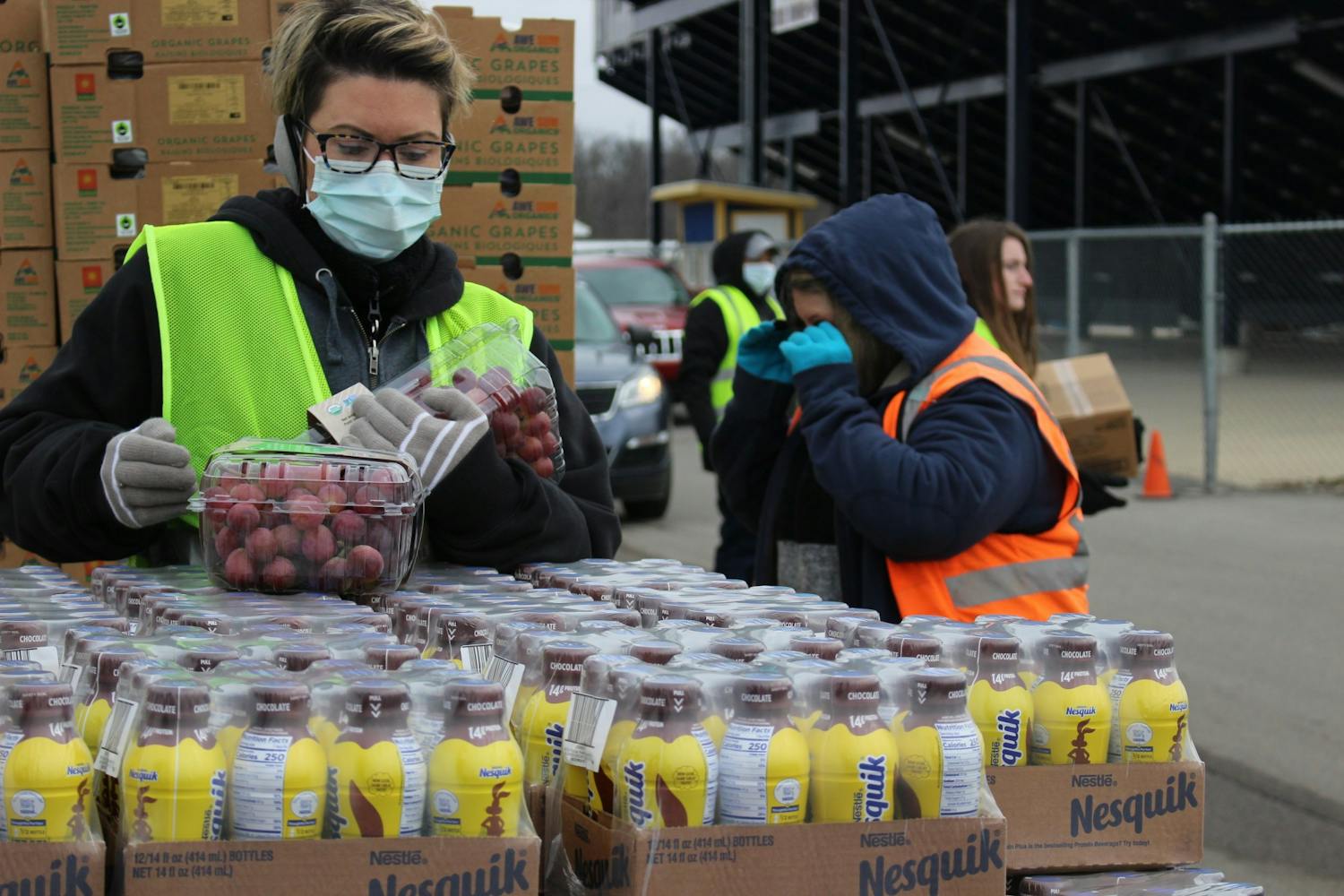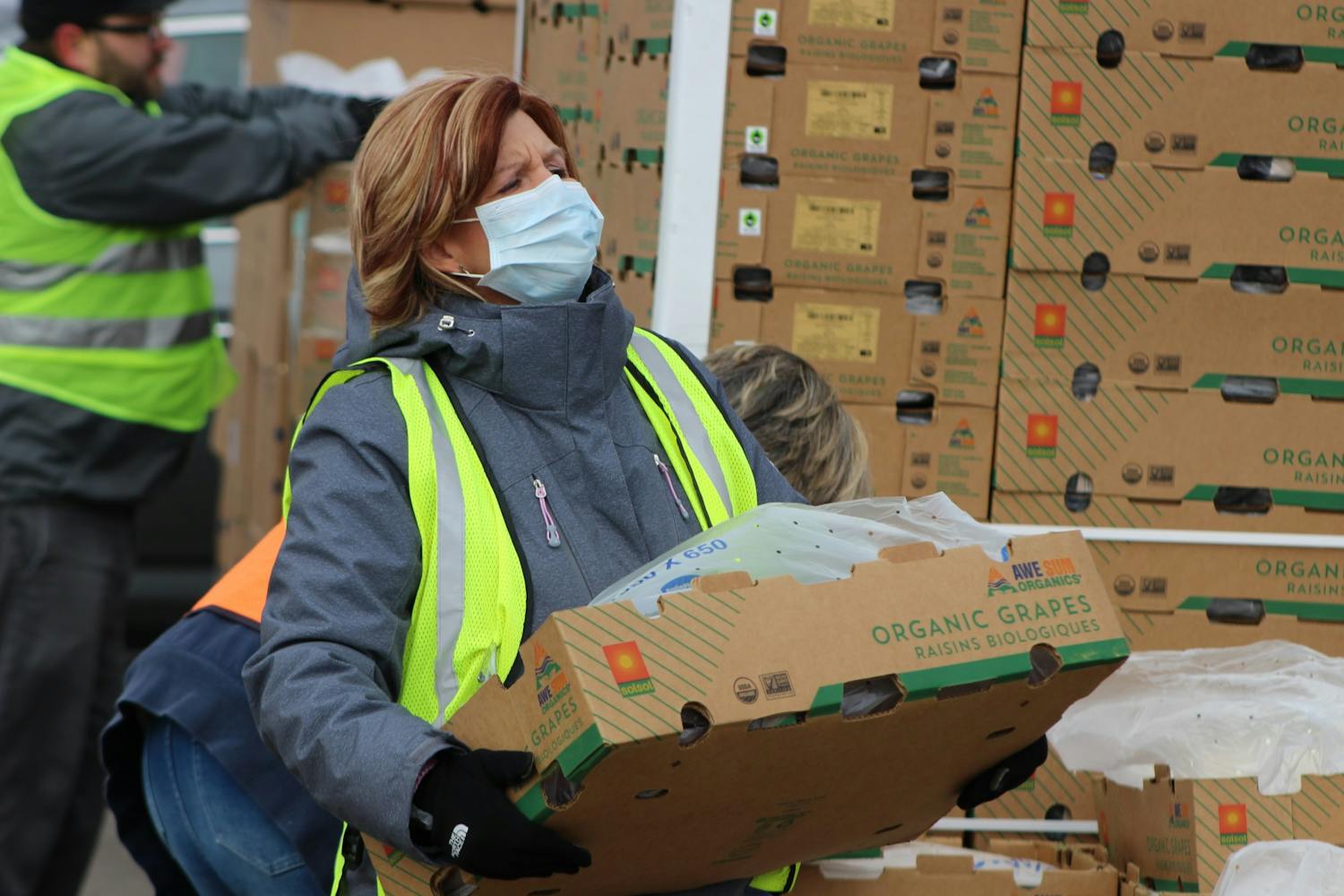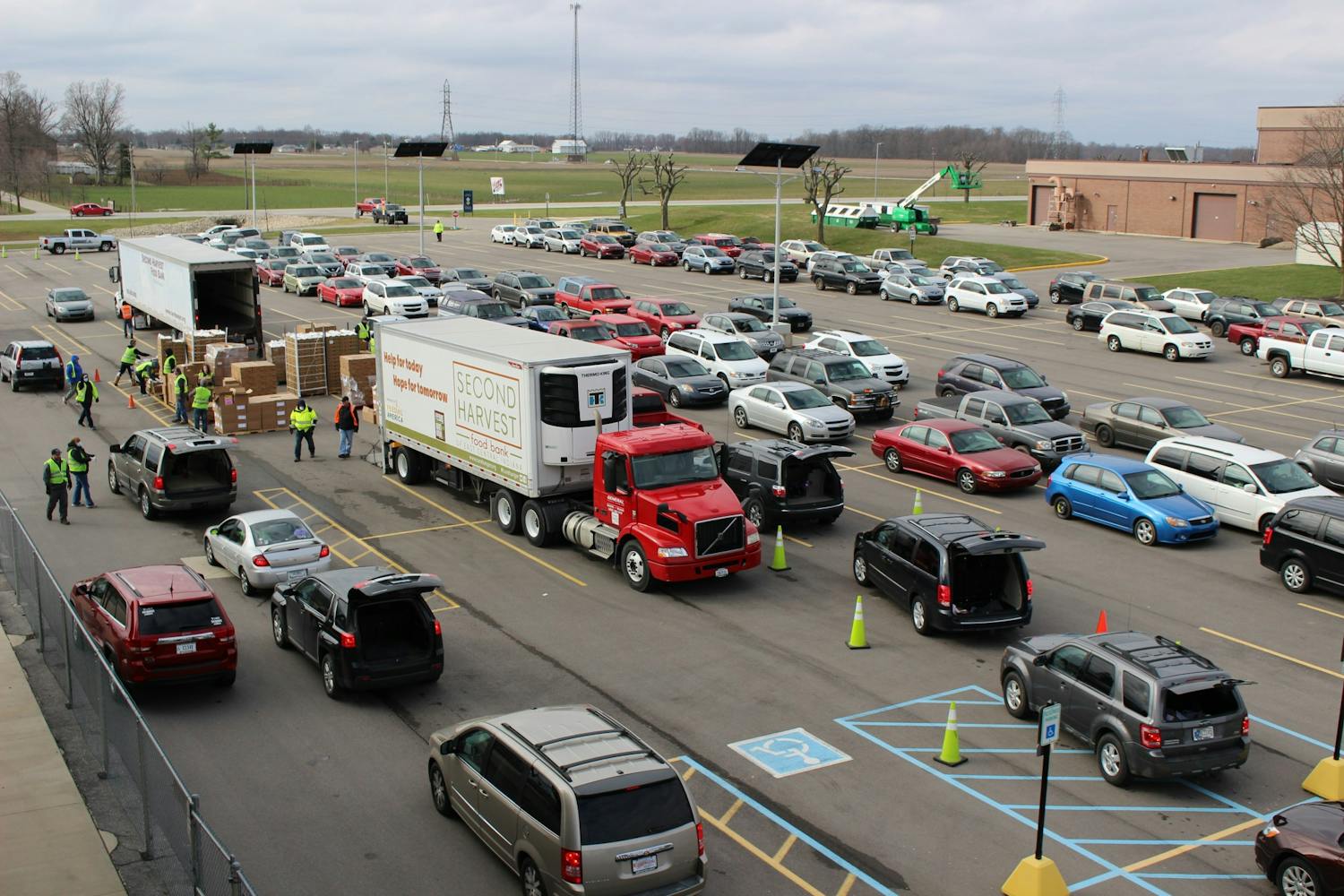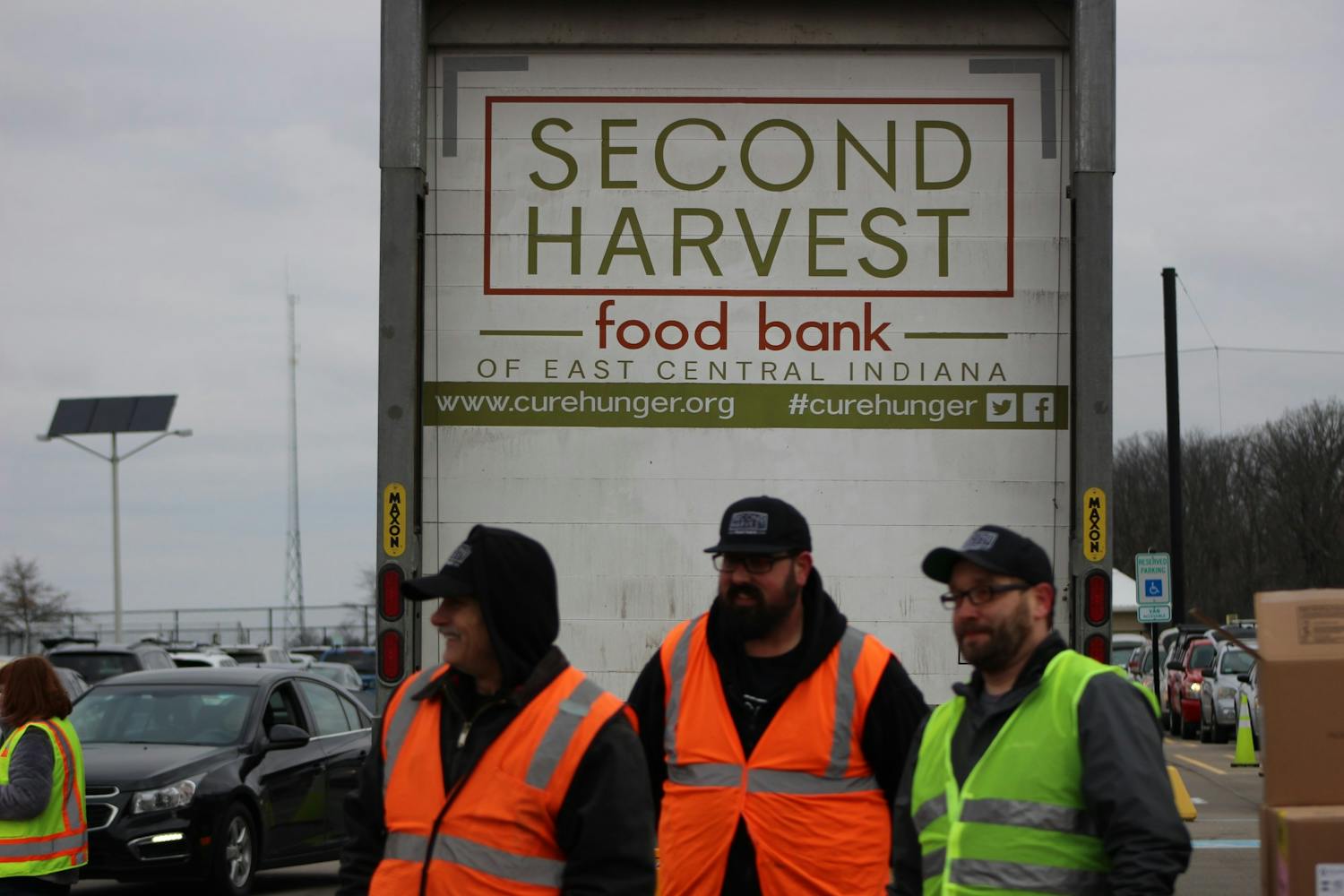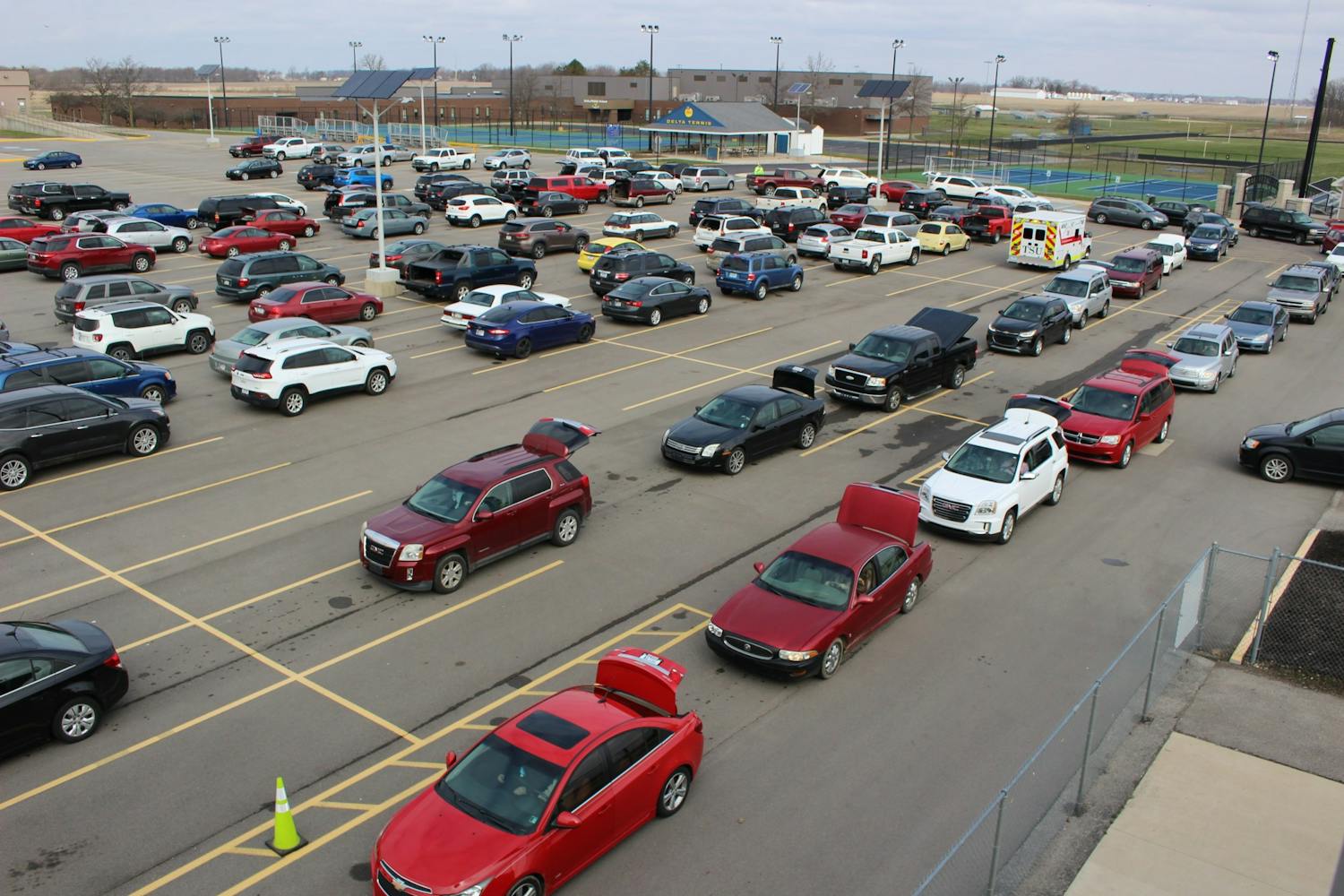Volunteers interested in helping Second Harvest Food Bank can fill out the Google Form on the coronavirus hub website, contact Kelly Arrowood at karrowood@curehunger.org or call the emergency management agency at 765-747-7719.
People can also donate online to Feeding America, a national network of food banks Second Harvest belongs to, or on the food bank’s website.
The Indiana stay-at home order does not affect Second Harvest and its volunteer program because it is considered part of essential services, said Tim Kean, president and CEO of the food bank.
Ralph Whysong said he has been a truck driver for Second Harvest Food Bank for nearly 10 years, and he’s never seen a turnout for free food distribution like he did March 21 at Delta High School.
Despite the cold spring morning — with temperatures below 30 degrees — volunteers like Whysong, dressed in thick jackets, gloves, reflectors, earmuffs, hats and facemasks, continued serving the long lines of vehicles gathered to receive meals.
“We’ve had to really plan for this many people,” he said. “Logistically, it’s hard to get the numbers together.”
But Whysong said he loves helping the community, and it was nice to see everybody “pulling together right now.”
“It’s heartbreaking to see how many people are hurting,” he said. “It feels so good to be able to be out here, especially now, because everybody is so scared. So, it’s good to see the turnout [and] operation’s going well. We got lots of volunteers — that makes us feel really good.”
Like grocery stores around the country, he said, the food bank is scrambling every day to get enough food for people in East Central Indiana during the ongoing global COVID-19 pandemic.
He said he has been working 40 to 60 hours a week, probably more, since the spread of the coronavirus in Indiana, adding “it’s a lot of food and a lot of work.”
“I just pray that the people are patient because that’s the big thing — they want to get their stuff, and they want it now,” Whysong said.
Apart from addressing concerns surrounding the county’s March 20 disaster emergency declaration, Jason Rogers, director of the Delaware County Emergency Management Agency, spoke about the county’s efforts to tackle the pandemic in his daily video brief.
“We know that there’s a lot of impulse buying that’s going on, and some of you may have trouble getting food,” he said, adding his office, along with its partners, are making sure “long-care needs are going to be met.”
He said supply lines will continue, and more points of distribution (PODs), like the first one, which took place at Delta, will be set up to ensure the community’s needs are met.
“Just line up. There’s no reason to get out of your car, and we can make this a very smooth process and get you through the lines quickly,” Rogers said.
For Chris Box, volunteer coordinator for Second Harvest, working the tailgate events, especially during the pandemic, means a lot.
“You actually see who you're giving to. You're seeing a response from the community,” Box said. “They’re very appreciative, but it’s nice to know that no matter how bad your day is, how tough your day is, that somebody is going home and eating that day.”
Box said there are tailgates in different parts of East Central Indiana Wednesdays, Thursdays and Fridays.
However, more tailgate events are being planned for other days of the week in response to the pandemic. According to the food bank’s website, six additional tailgates were planned during the month of March.
People in line Saturday received chicken, corn casserole, grapes, oranges and milk. Second Harvest food distributors loaded enough food for three families per car, Box said. He estimated this amount would serve three families at least four meals or more.
He said the food bank is getting a good response from its volunteers and people in need. He said the event at Delta probably had 400 or more vehicles present, and the expected number of people coming to get food in the coming weeks would be above the normal numbers.
“We’re just going to keep pushing food out as long as we can, as fast as we can, for people,” he said. “We know there’s a big need, and it’s only going to increase.”
Second Harvest and its partner agencies distribute meals through food pantries, soup kitchens and shelters, but changes to the free meal schedule might happen due to closures and other responses to the pandemic. Regular updates are posted to the food bank’s website regarding changes to or additional meal distribution times.
According to the website of Delaware County’s coronavirus hub, the county’s emergency management agency is working on setting up food distribution points in the community with Second Harvest.
The county is in need of groups and individuals willing to assist with loading and unloading food at these sites, the website states. Volunteers will be given appropriate protective equipment and training and must be able to lift moderately heavy objects.
“At the tailgates, we're seeing a big turnout now, so we need more and more volunteers,” Box said. “I know that it’s a tough job. It’s a long job for volunteers that are out here lifting and moving stuff, but we appreciate it. I mean, we honestly can’t do this without volunteers.”
Rohith Rao contributed to this story.
Contact Bailey Cline with comments at bacline@bsu.edu or on Twitter @BaileyCline.

